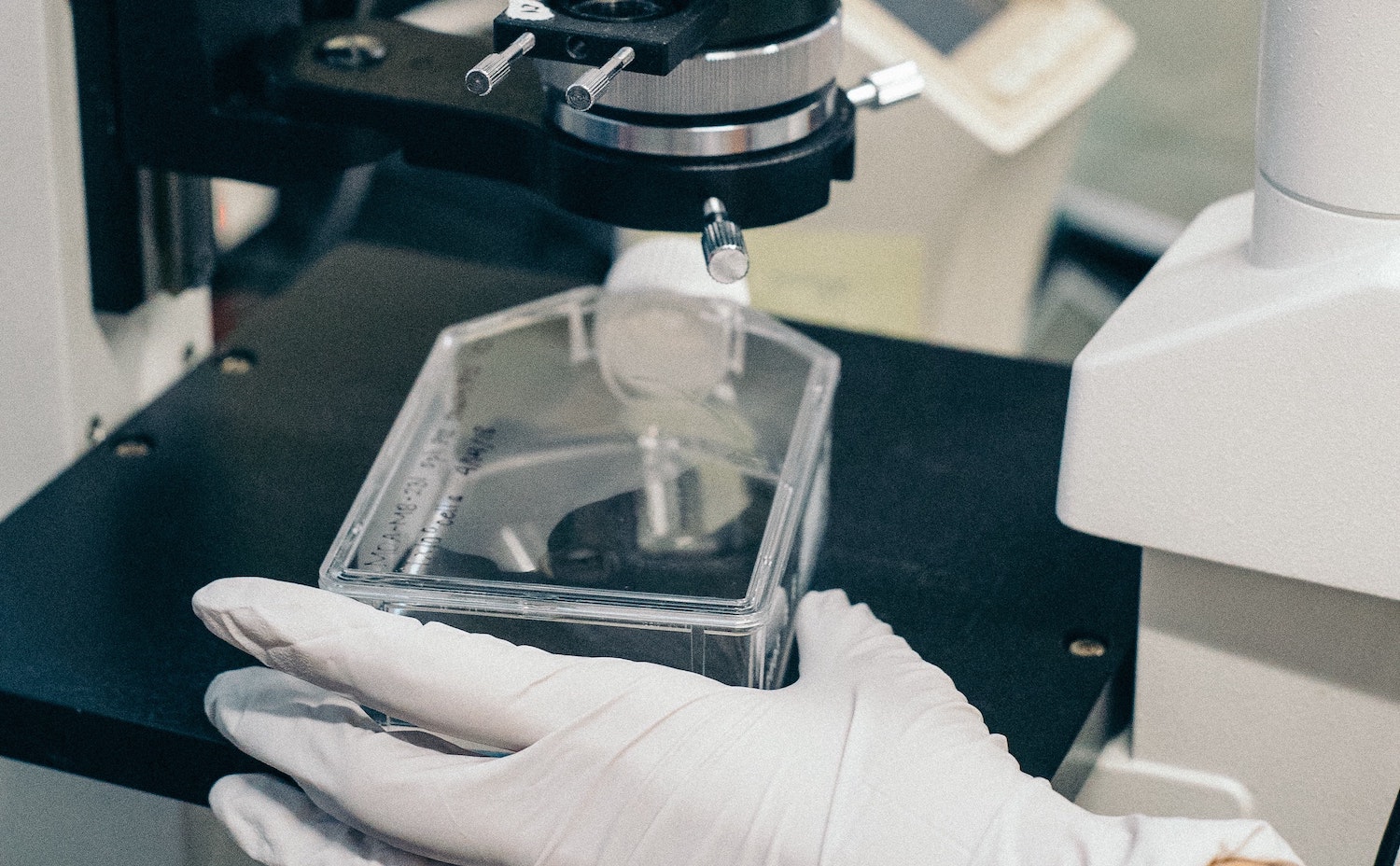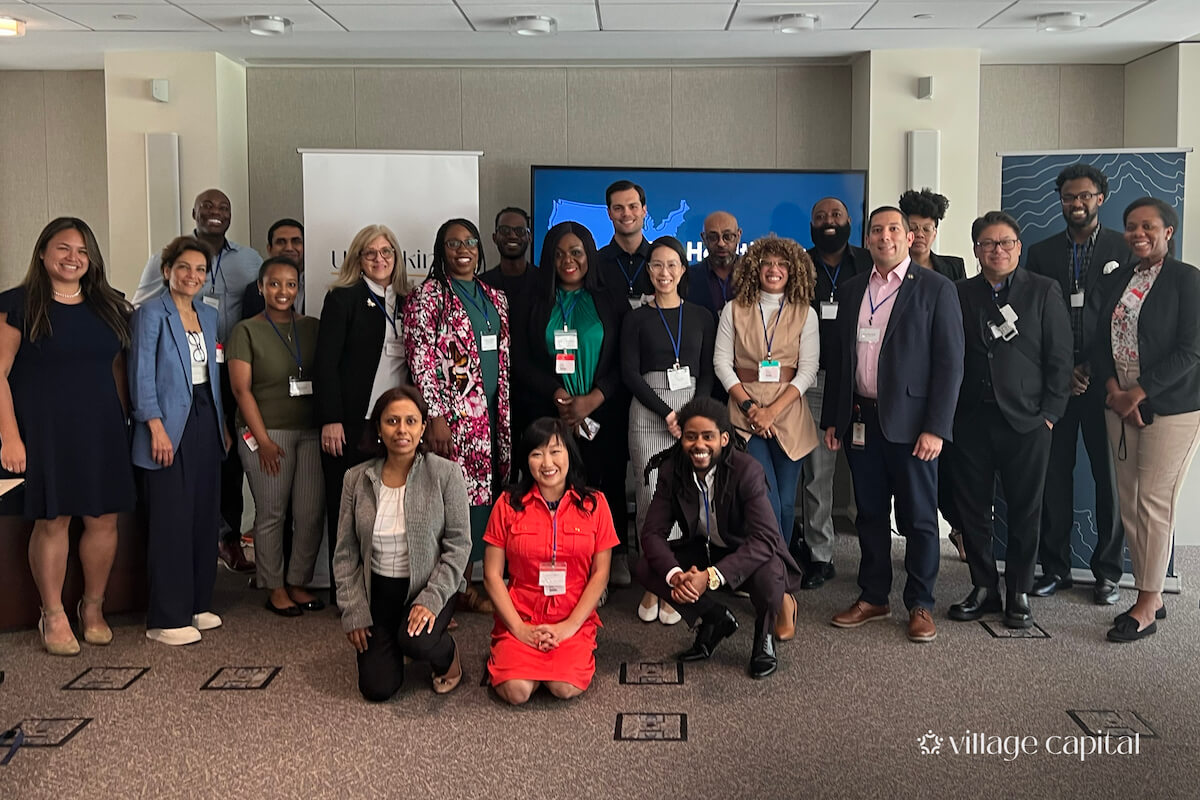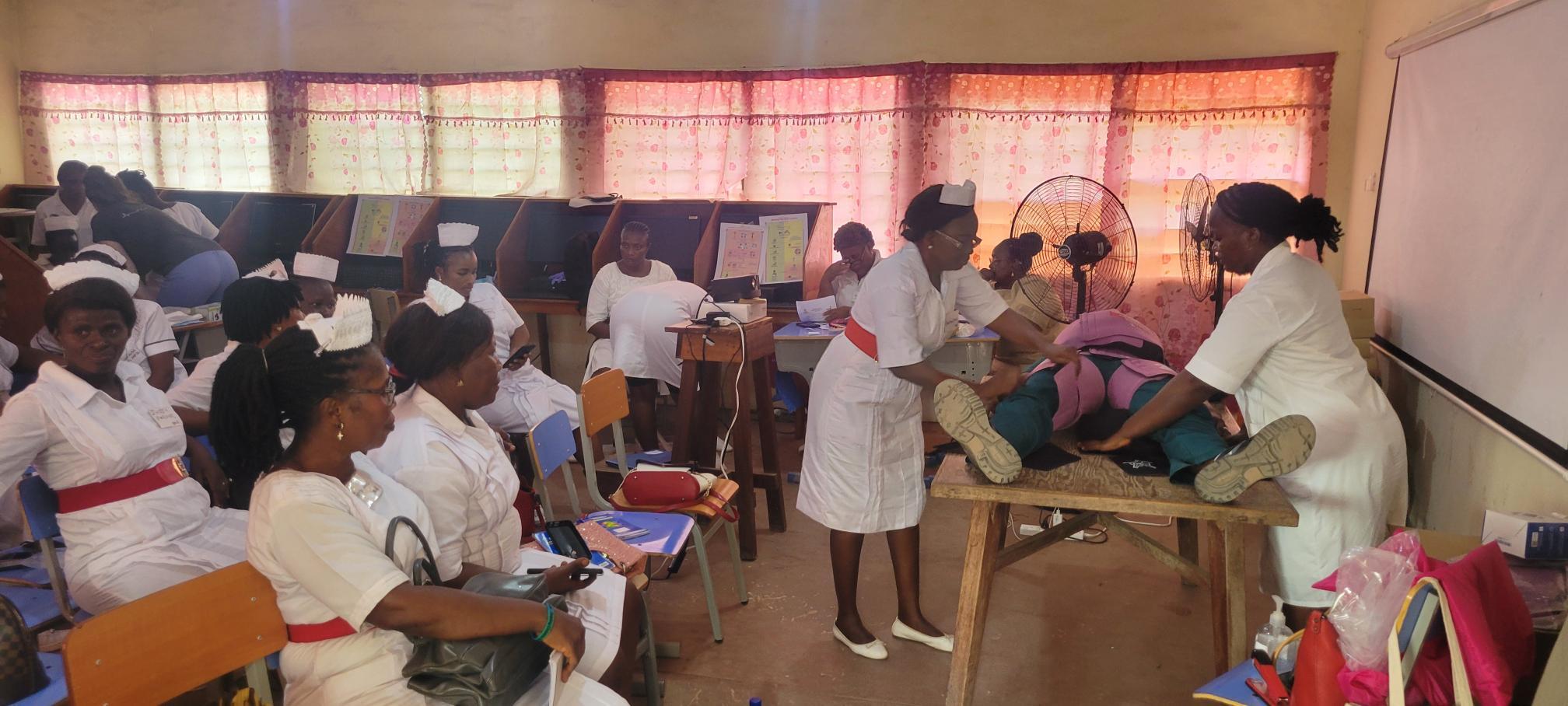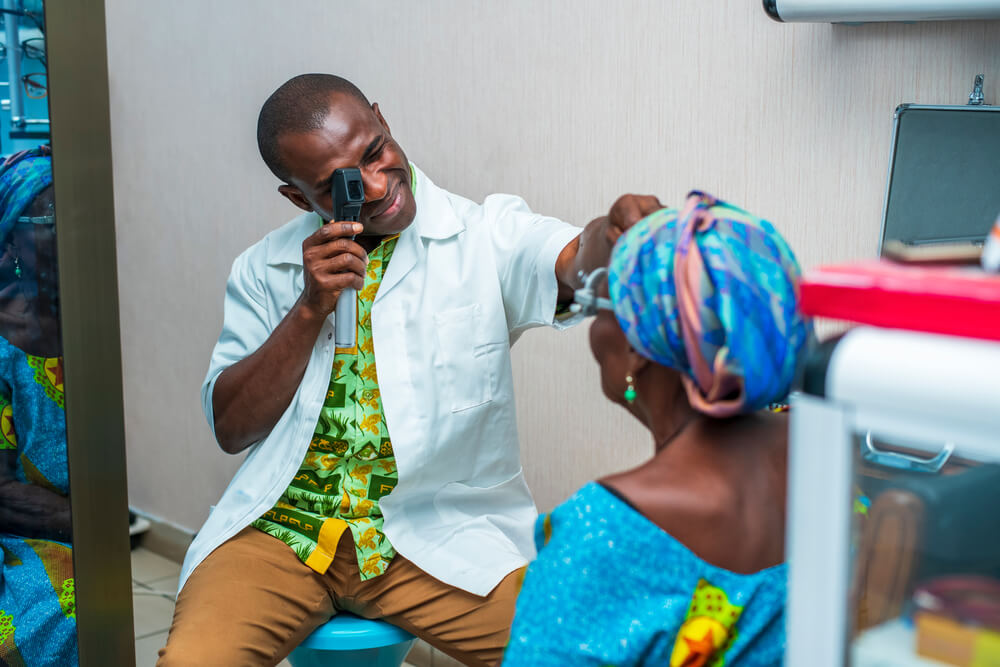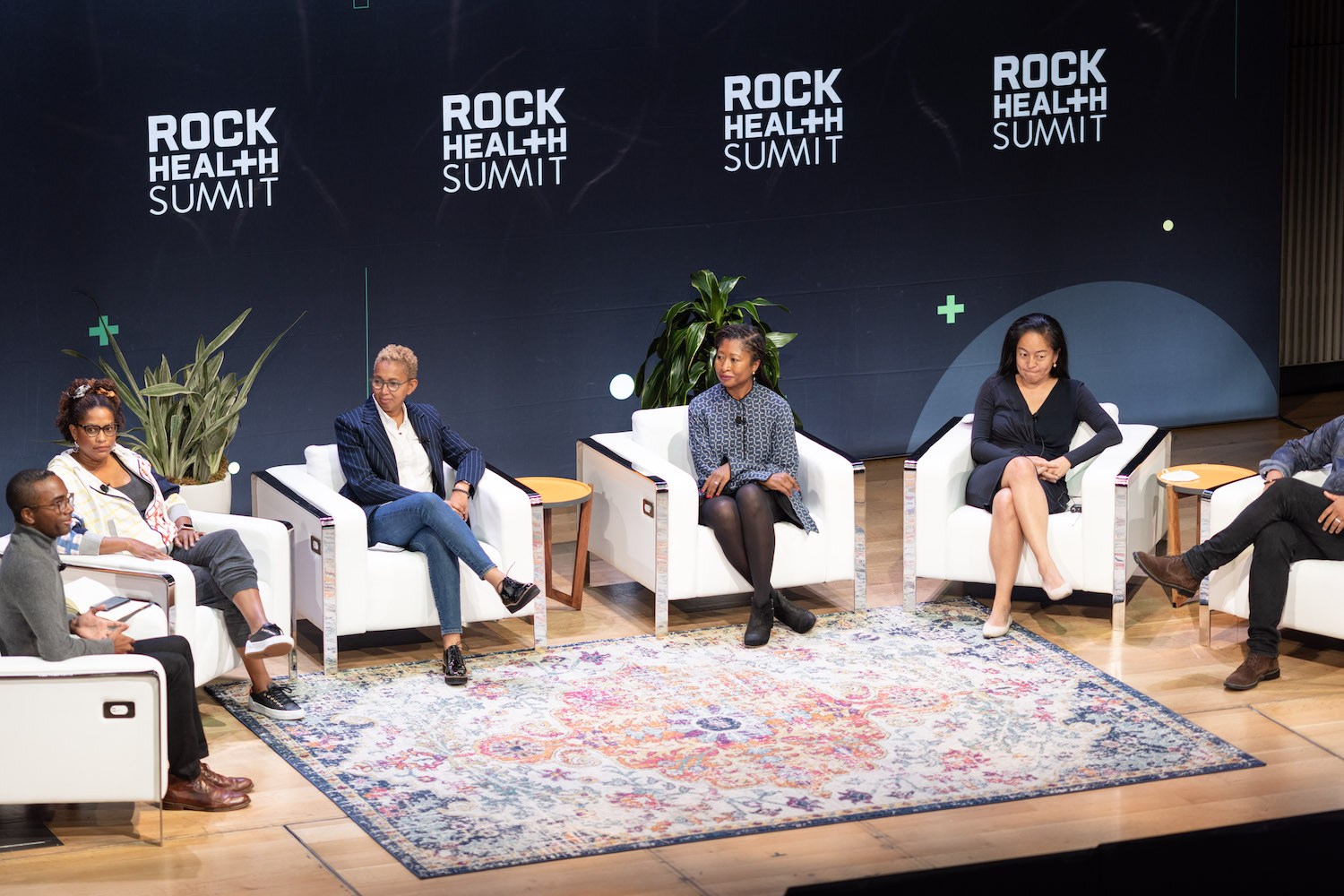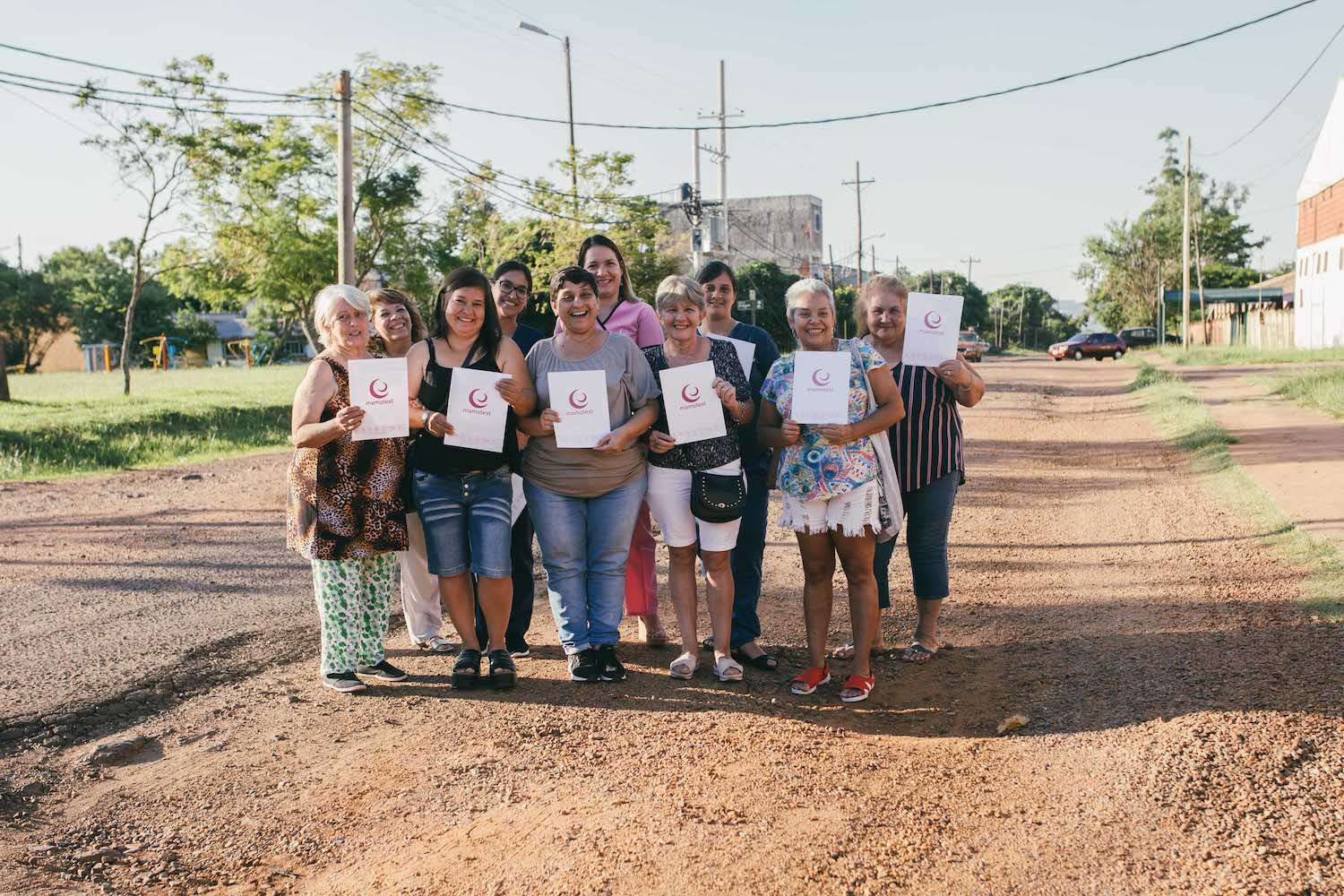Editor’s note: This article is sponsored by Johnson & Johnson Impact Ventures, which supports ImpactAlpha’s Investing in Health coverage. In partnership with J&J Impact Ventures, ImpactAlpha is exploring the market potential of impact investments in purpose-driven entrepreneurs working to improve health outcomes for underserved communities around the world.
Almost exactly seven years ago, The Wall Street Journal reported that a company, valued at $9 billion and promising to put vast health knowledge in the hands of everyday consumers everywhere, was lying. It was Theranos, now globally famous for its downfall.
Fast forward seven years, and an article published in the Journal of Medical Internet Research assessing the clinical robustness of digital health start-ups would suggest there is still a great amount of work to do. Of the 224 companies reviewed, almost half (44%) had a clinical robustness score of 0. Additionally, almost 15% (32) of these companies made clinical claims. This indicates that “despite the hundreds of digital health companies targeting the myriad of needs across the care continuum, clinical robustness and public communication of claims remains low across much of the sector.”
As the article authors succinctly put it: “These findings may suggest a disconnect between marketing and evidence.”
At Johnson & Johnson Impact Ventures, a fund within the Johnson & Johnson Foundation, our Impact Framework aims to tackle these challenges by cultivating shared accountability and actioning scrutiny of our portfolio, our impact and ourselves.
Delivering real impact that improves health outcomes for underserved communities requires far more than transparency. It requires innovators and investors to make their expectations and standards explicit and then to share a sense of accountability to those expectations.
Investors in particular should embrace the high chances of missing the expected targets, and perhaps even creating unintended consequences, but also commit to turning those results into insights that spur evolution and progress.
It’s not as simple as “just measure it”
While Theranos is clearly an extreme example of fraudulent activity that is not representative of most digital health startups, there are still powerful lessons to learn as health impact investors. We need to maintain a critical lens if we are going to protect patients from unnecessary risks, as well as to prevent falling into the trap of “impact washing.”
In what is already a complex space, overstating an investment’s positive impact on society may further muddy the water on what is and is not working. And right now, as we enter the adolescent years of health impact investing, knowing what is not working is just as powerful as knowing what is.
Who is ultimately responsible for filling in gaps in knowledge and reducing risk in the health impact investing space? And how do those who feel accountable rise to the challenge?
It would be easy to say that the innovators are accountable and must simply measure social impact with scientific rigor. But it isn’t that simple. Innovators face the “no evidence, no implementation—no implementation, no evidence” paradox in digital health: a chicken-and-egg situation describing how evidence comes only through successful implementation, but often implementation is not funded without evidence of early success.
This paradox is perpetuated by unattainability, unintended consequences and unknowns — from rigorous measurement rubrics such as randomized controlled trials requiring resources that are quite simply unattainable for early-stage companies, to innovator-investor dynamics that spawn a hesitancy to measure and report on unintended results. What does early success even look like when the definition of social impact, and how it is measured, is still evolving with so many unknowns?
Defining expectations
Our portfolio. We define expectations for screening, scoring and monitoring impact across five key criteria: the scale of impact, access by under-served populations, depth of change, portfolio company contribution to outcomes that would otherwise not be experienced and the additionality of J&J Impact Ventures financing and non-financial support.
This non-financial support includes consulting services with The Good Economy that we provide to help our portfolio companies evolve their impact strategy and reporting over time. This emerges from our belief that for accountability between investors and investees to be truly shared, the burden of resourcing these activities must also be shared.
Our impact. We work with impact entrepreneurs to mutually set expectations early in the diligence process for both financial and impact reporting obligations, and then incorporate those targets into investment agreements where appropriate. Together, we focus on actionable data to prove out the business model as well as the theory of change. These reporting milestones serve as pitstops for innovators and investors to pause and reflect together on whether we are on track for delivering the intended impact, or whether changes to the business model are needed.
Ourselves. We cannot assume that we (nor our innovators) will get it right the first time. This is why we continue to reflect on our ways of working and refine our portfolio thesis to optimise health and social impact. There is a difference between risk and uncertainty, which is why we remain both open and curious to Standards of Evidence that may prompt us to seek a level of evidence that is appropriate for a company’s stage of innovation, while challenging us to answer important questions, such as: Is an innovation doing any good? Is it even doing harm? Are there better approaches we could take?
Particularly at early-company stages, the data we gather is critical because it can flow back into further experimentation and learning — directly serving our shared goals to understand the business model and social impact.
As Thomas Edison famously stated, “I have learned 50,000 ways it cannot be done and therefore I am 50,000 times nearer the final successful experiment.” Iteration is key.
Ultimately, scrutinizing social impact and driving shared accountability is a challenge worth confronting if we want to deliver on our promise to advance healthcare for humanity.
Sarah Mullane is health tech lead for global community impact at Johnson & Johnson.

